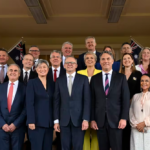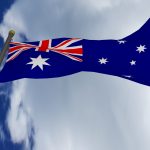The challenge of free speech

This article was written by Professor James Arvanitakis and Assistant Professor Jason McConnell of Wyoming University and Alphia Possamai-Inesedy of Western Sydney University.
Recently, the Australian Association of University Professors (AAUP) shared a statement on the ‘10 Pillars of a University’. Pillar 1 states that “Universities are communities of scholars whose aim is to seek knowledge by pursuing free and open enquiry, scholarship and learning, and to assist and encourage students to do the same.”
While the AAUP can be criticized for not being representative of scholars across Australia, their presentation of the function of a University highlights the many contemporary debates regarding both free expression and academic freedom at university campuses.
It is important to acknowledge that while interrelated, free speech and academic freedom should be differentiated. The many examples we can present stem from wide ends of the political spectrum and include both free speech and academic freedom.
Such examples include, student protests against controversial opinion editor Bettina Arndt who has outraged sexual abuse survivors was a clear issue of ‘free speech’ and James Cook University’s dismissal of Professor Peter Ridd who criticised scientific research about the climate change impact on the Great Barrier Reef (an issue of academic freedom).
Another significant example of academic freedom being threatened was when former Education Minister Simon Birmingham vetoed eleven humanities research grants.
While Australia has witnessed cases of threats to academic freedom and free speech within Universities, its status of being in a crisis has been heavily critiqued. The debates of the United States on ‘no platforming’ and ‘trigger warnings’ are not present in Australia to the level of a crisis, cases of the US were used as evidence to prompt an inquiry into free speech.
Arguments that Australia, like those presented in the United States about an embedded ideological bias against conservative ideologies and students was also part of the drive for national inquiry.
Undertaken by former High Court Chief Justice Robert French AC, the ‘French Review’ found that there is “no freedom of speech crisis” at Australian universities but did recommend an amendment to the Higher Education Standards Act and Higher Education Standards to support a Model Code and introduce a definition of academic freedom.
The findings of the French Review did not satisfy Australia’s conservative media which generally failed to mention the conclusion but rather focused on the recommendation to implement a model code. In one opinion piece, The Australian’s Janet Albrechtsen harvested the sections that served her argument and warned, “Don’t be fooled by universities trying to define down this review.”
Despite the conclusion of the French Review, the issue around freedom of expression at university campuses remains a topical one and is likely to again be politicised at some point. No matter where you stand on the AAUP statement – and each of us has our own opinion of it – it is important to take a proactive position debates will continue to emerge and if anything, will only get more intense.
As academics and researchers based in the USA and Australia, we are interested in seeing what trends are emerging globally and reflecting on how to best prepare the academy. What is clear is that the space is polticized, evidenced through the push for the inquiry into free speech in Australia and current state legislation in the USA that places restrictions on these values.
The tension we must recognise
There is a tension between the right of free speech promoted by student groups and the rights and responsibilities of academic freedom for the academic. The latter can be defined as the right to carry out research, teaching and public commentary without intrusion. The test of academic freedom, therefore, is different to that of free speech.
Academic freedom are rights and responsibilities articulated through University codes, policies, charters and agreements, reliant on institutional autonomy and tested through challenges.
Conversely, freedom of speech is regulated by general law, yet based on the necessity of protecting critical thought and speaking truth to power. In Australia, Justice French included students in his definition of academic freedom, and this is increasingly reflected in University charters (or equivalent).
One recent example from the US on this tension, is the position of Professor Camille Paglia from the University of the Arts with students demanding she be fired. Paglia is a target because of her statements criticizing some women who bring charges of sexual assault, and because of her comments about transgender people.
In a 2017 interview with The Weekly Standard, Paglia stated:
“It is certainly ironic how liberals who posture as defenders of science when it comes to global warming…flee all reference to biology when it comes to gender. Biology has been programmatically excluded from women’s studies and gender studies programs for almost 50 years now.
Thus very few current gender studies professors and theorists, here and abroad, are intellectually or scientifically prepared to teach their subjects… Intersex ambiguities can occur, but they are developmental anomalies that represent a tiny proportion of all human births.”
Despite such positions, Paglia has also argued for equal rights and for people to define their sexual orientations and gender identities as they wish despite the protests of conservatives.
While she identifies as being transgender and has written extensively about the great contributions made to art and society by people who cross gender boundaries., she has also defended the right of scholars, to challenge some of the stances taken by some who support transgender rights.
This did not convince the students who continue to demand she be removed from her position – something that the President has ruled out and defended Paglia’s academic freedom to enter such debates.
Were Paglia a student making such unpopular observations, she might raise free speech as a defence to her detractors. Since she is an accomplished academic, however, we couch the incident in the language of academic freedom.
What do we research?
Academic freedom is something that is being hotly debated in the USA and following Education Minister Birmingham’s veto, in Australia. Topics that should or should not be researched are being politicized.
In a recent article, New York Times science writer Amy Harmon outlined a new initiative in Colorado that is attempting to respond to the gap in genetics of race in the biology classroom. Harmon writes:
“Biology textbooks used in American high schools do not go near the sensitive question of whether genetics can explain why African-Americans are overrepresented as football players and why a disproportionate number of American scientists are white or Asian.”
The initiative is a pilot project to confront “unfounded genetic rationales for human difference that often become the basis for racial intolerance”. Those driving the initiative say their motivation is to confront the conventional wisdom among science educators that questions about race are best left to their social science counterparts.
By not confronting this issue head on, they argue, they leave unanswered questions that leave many young people susceptible to misinformation.
Entering the world of genetics, eugenics and race is both confronting and controversial. The acts of colonialism (not to mention Nazi Germany) had such ‘scientific justifications.’ Does this mean, however, that we should avoid it? If entire topics are “off limits” then we can’t use the knowledge of the academy to even dispel harmful myths.
Charting a way forward
The challenge confronting freedom of speech on campuses is not a left or right one. Both ends of the political spectrum have their own version of ‘political correctness’ and ‘sacred cows’ that creates an outrage when challenged or questioned: ask any academic who has criticised Israel, challenged climate change research or questioned the Anzac legend.
It is here that statements such as those presented by the AAUP are important, “… universities should study and engage with the fundamental global challenges, including environmental, economic, social and cultural.”
There are topics and positions we all disagree with but as scholars, we often are confronted with them. If we are serious about protecting free speech and academic freedom, then we need to be prepared to defend those we do not agree with. Our criticisms should be based on the quality of their research and their articulated position, not on shutting down debates and research before they begin.
To do so would return us to the days when Galileo was put on trial for stating that the Earth revolved around the Sun: and this is a threat that can come from those we vehemently oppose as well as those we agree with.
Dr Jason B. McConnell is an Assistant Professor of Political Science at the University of Wyoming whose work over the last ten years has focused on speech issues on contemporary college campuses. Jason’s recent research has examined the relationship between perceptions of racism, sexism, and bigotry and university policies designed to combat those issues while also protecting free expression.
Alphia Possamai-Inesedy is a Professor of Sociology and Chair of Academic Senate at the Western Sydney University. She is the current Vice President of The Australian Sociological Association.
Professor James Arvanitakis is the Executive Director of the Australian American Fulbright Commission – one of the world’s most prestigious international education and cultural exchange programs.











